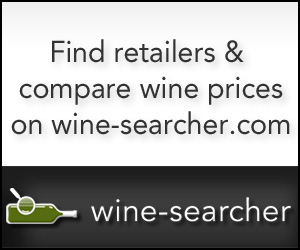Flying Blind on the Flight to Value
© Donald A. Dibbern, Jr.

Scanning the dour headlines recently with their daily dose of dismal economic news, it is challenging to write sensibly about wine in these times, which is after all hardly a necessity of life.
Even while we are collectively cutting back on luxuries however, if there yet remains a bit of room in the budget for such things as wine, it makes sense to really sharpen our focus on the search for value.
This month's column is the second in a series of articles about the quest to maximize our pleasure per (limited) wine-dollar. When long-time wine enthusiasts face new financial constraints, how might they decide among the many wines competing for their remaining budget? I propose that there is no greater tool in the search for value than that of blind tasting.
Why taste wines without seeing the labels? All of that useful information on specific producers, regions, alcohol level…not to mention price, would be masked. Well, several reasons, actually. To start with, that is what the wine-pros do. If professional tasters, critics, and wine judges know that their judgment can be affected by such factors, even unconsciously, none of us can hope to taste in truly unbiased fashion in an open setting.
I am not, however, suggesting that blind tasting is the only way to drink and enjoy wine-far from it. There is an enormous amount of pleasure in savoring and appreciating a wine from a producer that you have purchased from for a long time, analyzing nuances of vintage variation, and integrating that information which allows one to compare it with other producers, or regions, or years.
Although many wine lovers might be loath to admit the fact, even an appreciation for particularly elegant packaging or artistically designed labeling of a particular wine has valid aesthetic merit, and thus provides something of "value." But for those of us who actually plan to drink the liquid inside, as an integral part of the pleasures of the table, not to cellar away as a trophy, or an investment, or to impress others, it must be the intrinsic quality of the wine that is paramount.
But the way that our brains are wired, these other factors can significantly affect the mechanics of our perception. Indeed, I'm sure that you find it no surprise that many costly wines have heavy oversized bottles, fancy labels, and other similar accoutrements. If it looks expensive, it tastes expensive, and it is expensive. Cogito, ergo sum?
In a well-publicized scientific article with the mind-numbing title of "Marketing actions can modulate neural representations of experienced pleasantness," (Proc Natl Acad Sci 2008 Jan 22, 105(3):1050-4), Hilke Plassmann and fellow Cal-Tech scientists had twenty volunteers drink wine while undergoing functional MRI scanning. This allowed them to essentially see the blood flow in brain regions that are active when we experience pleasure, all while the subjects tasted five wines. They were told that the wines, Cabernet Sauvignons, cost $5, $10, $35, $45, and $90. But the clever researchers used only three wines, which actually cost $5, $35, and $90. For the "$45 wine," in reality it was the modest $5 wine, whereas conversely the purported "$10 wine" was actually the costly $90 wine.
Guess what? There was a strong statistical correlation between the perceived price, the reported pleasantness, and brain activity found in the so-called pleasure centers. Interestingly, though, there was no effect of price on the primary taste areas of the brain. So, in a sense, knowing the price didn't actually affect the flavor, but rather the enjoyment of the wine.
Another widely discussed but not yet published study, done by Dr. Adrian North, a psychologist at Heriot Watt University in Edinburgh, showed that even background music playing in a tasting room appears to significantly influence tasters' perception of wine. Both a Chard and a Cab, provided by Montes of Chile, were perceived to be more "powerful and heavy" when listening to Carmina Burana by Orff, but those same wines were rated as more "subtle and refined" if Tchaikovsky's Waltz of the Flowers from The Nutcracker was playing in its place.
An earlier study by Dr. North also documented that more French wine was sold in a British supermarket on the days when stereotypically French accordion music was playing on the tape deck in the drinks section, while more German wine was sold on days that alternately featured Bierkeller oompah tunes to be heard there instead (Nature 1997 Nov 13, 390(6656):132).
So, realizing that the mind can be subjectively swayed by a variety of extrinsic influences having zero relation to what's truly in the bottle, it bears mentioning that it's also quite fun and challenging to taste "brown-bagged" wines. I find nothing that sharpens the attention and palate better than a couple of wine-friends discussing and trying to guess what they're tasting, in friendly competition.
Let's address the details of how to do it, at least with regard to making personal wine buying decisions. It's pretty simple, really. As we mentioned in last month's column, most wine retailers will give a healthy discount to a customer buying a full case of wine. But before committing to that case or two of house red, maybe bag up three or four different options you are considering, from a couple of different price points if you like, for a blind comparison.
If your favorite does turn out to be the most expensive, you can better decide if the extra cash is really worth it. If you find however that you truly prefer the less costly wine, apart from the influence of the label and such (not that you are trying to impress anyone but your own palate), you've saved yourself some money that you might otherwise have spent.
Times are now tough and one option is always to try to, as the old saying goes, "drink less but drink better." Using blind tasting though, and given a little bit of effort and an open mind, you may actually be able to "spend less but drink better"….
© copyright 2008 by Donald A. Dibbern, Jr., all rights reserved
November 2008
To contact Donald A. Dibbern Jr. directly, write him at wine@mongoosemail.net




